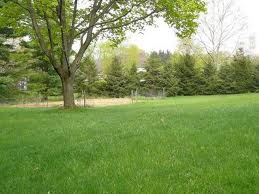The environment is on everyone’s minds these days. Global warming is now known to be a fact, not mere speculation by a handful of isolated scientists. There is no place on earth that is not affected. If you own your own home, a few simple changes can make your yard a more environmentally friendly place.
Use Natural Pesticides
Chemical pesticides are dangerous to your family’s health. They destroy helpful insects along with the undesirables. Replace them with beneficial insects. Ladybugs are probably the world’s cutest predator. They are best known for eating aphids, but also eat many other pests. Plant dill, cilantro, mint and daisies to attract them. Ladybugs may winter over in your home’s walls or roof, moving indoors when they awake in the spring. You can move them back outdoors without killing them, but it’s better if they don’t come in at all. Contact roofing contractors St Louis to check for holes or gaps where ladybugs can come in. Lacewings and nematodes are also very helpful in a yard or garden.
Use Native Plants
Using plants native to the area helps prevent erosion and even stops the spread of fire. Dr. Richard Minich of the University of California-Riverside has written many books and articles about this. When humans move from one region or state to another, they often bring plants and trees from their original home. Others are brought in unintentionally as seeds or spores. A harmless plant in its own environment can become an invasive species, affecting all aspects of the ecological cycle. A good local nursery can offer attractive native plants. Introducing these plants makes your yard much easier to maintain. The nursery can also tell you about natural fertilizers.
Conserve Water
Water conservation is key to restoring the balance. Even if you live in an area that gets plenty of rainfall, it’s important to make thoughtful use of your water supply. Don’t over-water your yard or lawn. Install some “smart” sprinklers and put them on timers. Be sure they are positioned so that you’re not watering your driveway. Watering should be done in the early morning for maximum effectiveness. Consider drip irrigation for trees and plants. Put out buckets when it rains and use that water on your indoor and outdoor plants. Don’t hose down your driveway or sidewalk. Sweep with a broom instead.
Use Non-Powered Tools
Lawn mowers powered with electric and solar motors are in the experimental stages. You can try installing one, or simply get rid of your gas-powered mower and buy a push reel mower. Get rid of gas-powered weed trimmers and leaf blowers at the same time. Use hot vinegar to get rid of weeds growing in sidewalk cracks or driveways. Effective mulching keeps weeds from growing around your plants. Some of those “weeds” may actually be beneficial herbs. They may be useful in cooking or natural remedies, or attract helpful insects.




